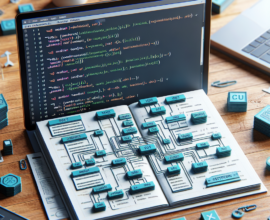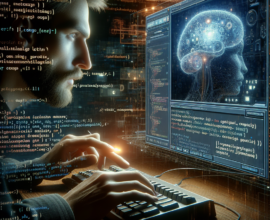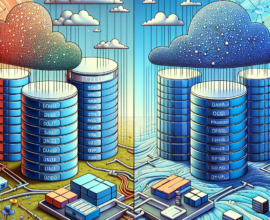An Operating System is one of the most important software interfaces between the user and the hardware components that run on a computer. The Operating system is responsible for managing the computer hardware components, and software resources and for providing common services to all the computer programs and utilities. It can perform many other tasks such as memory management, file management, process management, and input and output handling to control peripheral devices such as disk drives and printers. Some of the most popular operating systems include Windows Operating System, Linux Operating System, VMS, Ubuntu, AIX, z/OS, OS/400, Apple macOS, Google’s Android OS, Apple’s IOS, Fedora, etc.
What is the need for an Operating System?
So, to ease the process, many common tasks such as displaying texts, images, etc. on a standard output device, sending a network packet, etc. can all be shifted to the system software which serves as a bridgeway between the application programs and the hardware. This system software acts as a platform that provides the applications with a consistent and repeatable way of interacting with the hardware. Here no more detailing is required from the hardware side and all the common tasks are performed in an easy and fast manner. The applications can now with the help of the system software access the same services and resources almost any number of times and this actually reduces the time consumed and the coding required for the development and debugging of the applications. The use of the system software also ensures that the users can now control, manage and configure the system hardware through a single well-built, easy-to-understand interface.
Functions of Operating System
- System Performance Control
The Operating System keeps track of the overall system health to better the system performance. It even records the response time between the service requests and the system response thus monitoring the health of the system. This greatly improves the performance of the system by providing important information needed to troubleshoot the programs. -
SecurityThe Operating System makes use of many security techniques such as password protection, biometrics detection, etc. to protect user data and similar other information by preventing unauthorized access to the programs and the related information and data.
-
Error DetectionThe function of the Operating System also is to constantly monitor the system and report any errors occurring in the system. It even is tasked with providing aid for the errors occurring in the system thus avoiding malfunctioning of the computer system.
-
Software and User CoordinationOperating System also acts as a bridgeway between the software and the user and helps in the coordination and assigning of interpreters, assemblers, compilers and other software to the users.
-
Job AccountingIt does keep track of the time, resources and services used by various tasks and users. This information can be used to manage the resources and to track the resource usage for the particular user.
-
Memory ManagementThe Operating System also is assigned the management of the Main Memory of the system. This main memory comprises a large array of bytes where each byte is assigned a certain address. This Main memory is a very reliable, convenient and fast storage that can directly be accessed by the Central Processing Unit. For any program to be executed, it first needs to be fed into the main memory after which the Operating System performs several other tasks of the memory management. These tasks generally include keeping track of the main memory and using it for the further reference of the system. It is the Operating System which decides the order in which the processes are granted access to the memory and also the time duration for which the memory can be accessed by the process. It is the function of the Operating System to allocate the memory to the system process when it requests for the memory and then also to deallocate the memory when the system process requests for the termination of the memory.
-
Process ManagementIt is the Operating System which decides the order in which the processes have access to the processor and how much time can it have access to. The operating system performs the function of process scheduling by keeping track of the status of processes. The program which performs this tracking of the processes is known as the Traffic Controller.
-
File ManagementFile management is a process that is performed for efficient and easy navigation of the file system directories. An Operating System there is tasked with file managing activities such as keeping track of the information stored, user access settings and status management of each and every file stored. All these tasks performed are collectively referred to as file systems.
-
Device ManagementAn Operating System manages device communication while performing device management. This is usually done using the device drivers that keep track of the devices connected to a system. It designates a program responsible for every device known as the Input/Output controller which decides the process allocation to any device and for what time duration will be allocated. It also allocates devices easily and efficiently.
An Operating System all controls the execution of the application programs and manages the link between the hardware and the user by acting as an interface for the two. The Operating System is a set of special programs that allow the computer to function properly. There can be many types of operating Systems depending on the factors that are considered while making use of the software program. To learn more about all such types, do log into the DockLearn website and improve your knowledge about the software.





